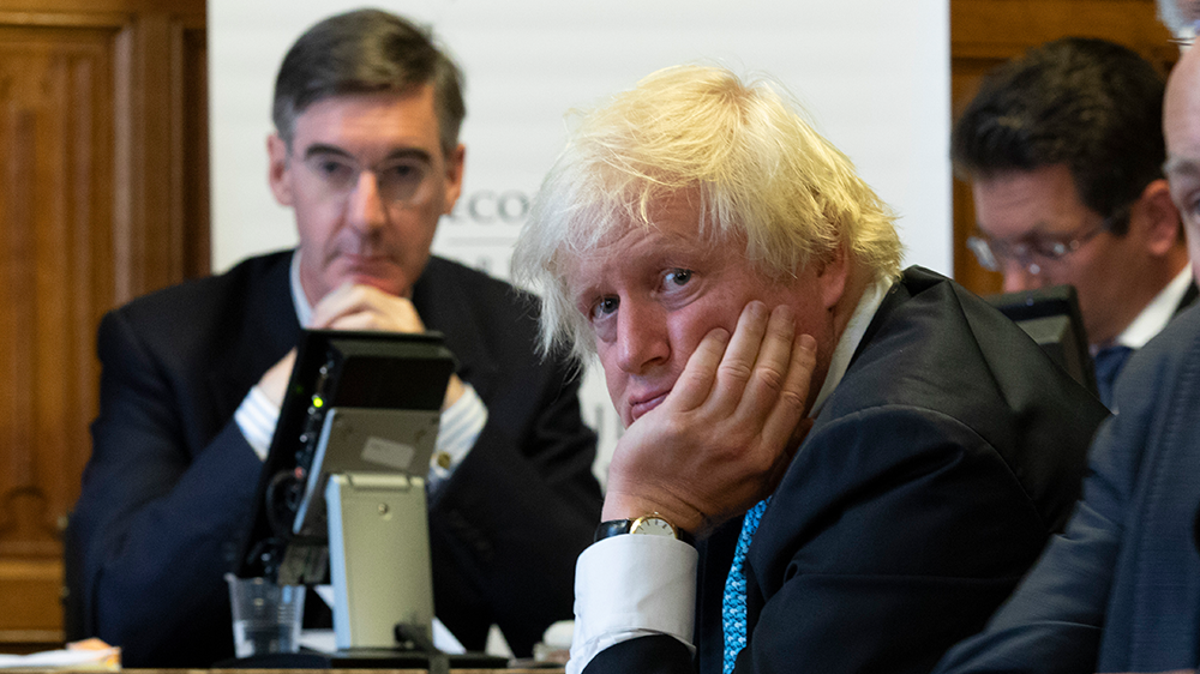
Boris Johnson told Jacob Rees-Mogg to be a “pain in the backside” for Rishi Sunak amid a row over Brexit, Guto Harri has claimed.
The former prime minister’s spin doctor said Mr Johnson gave Mr Rees-Mogg “carte blanche” to “tread on some toes” in the Treasury.
Mr Rees-Mogg, as he was being offered the job of cabinet secretary, warned the prime minister that Mr Sunak had “gone native” on Brexit policy, Mr Harri claimed.
The spin doctor said: “He warned the Prime Minister that on Brexit he thought the government had got to the point where it was trying to keep the UK deliberately, in what he called, the 'lunar orbit of the EU.'
“He warned that the Chancellor Rishi Sunak had 'gone native’.”
Mr Harri made the claim on his podcast memoir, Unprecedented: Inside Downing street. He has previously joked that Mr Johnson wanted to “take out” Partygate investigator Sue Gray with a “drone strike” and claimed the former PM “squared up” to King Charles for branding the government’s Rwanda policy “appalling”.
In the latest episode, Mr Harri said the prime minister wanted Mr Rees-Mogg to give the Treasury a “massive kick”.
Mr Rees-Mogg, he said, replied by making a joke about Mr Sunak’s small stature, claiming he would have to “tread on some little toes” in the department.
“Boris, after a little chuckle, gave him carte blanche to be a pain in the backside for the Treasury and for Rishi Sunak. His words quite simply, 'go ahead’,” Mr Harri said.
He also claimed officials were initially “anxious” about how to pitch the government’s Rwanda asylum policy to the public.
“I remember looking around the room and everyone was anxious, because the first thing that came to mind for most people when you said, 'We're sending people to Rwanda' was a horrible, haunting image of machete wielding genocidal tribes that went through each other decades ago,” he said.
Mr Harri said “most people” had not realised the African nation has “moved on in leaps and bounds” in recent years. Although he added that a key opponent of the policy remained in the Prince of Wales, now King Charles III.
“It not a good idea for an unelected royal to be at odds with the elected government of the day, even if people might agree with the unelected royal,” he said.
Ahead of a summit last summer in the Rwandan capital Kigali, King Charles was reported to have criticised the plan to deport asylum seekers to Rwanda.
And Mr Harri said it took “a lot of toing and froing” to avoid an embarassing moment as the two met.







